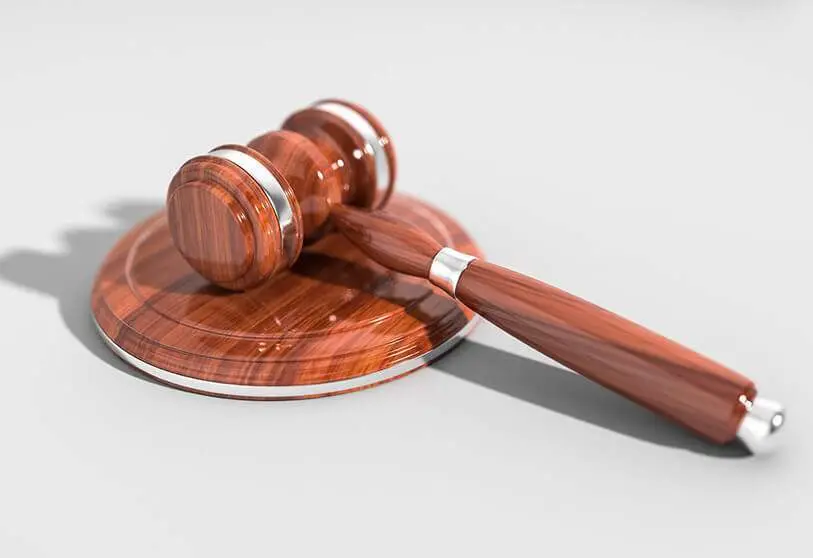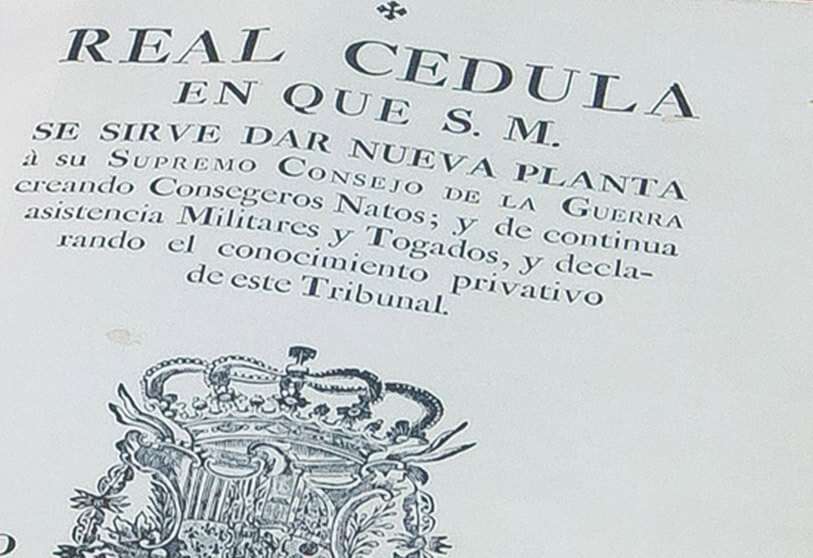Military or ordinary jurisdiction?

When a person commits a criminal offence, a series of judicial mechanisms operate to determine the criminal offence and who is responsible for it.
Criminal law is an issue that affects us all. It is in the sphere of our everyday relationships.
Consider for a moment whether you are aware of the existence of a criminal offence. Many people, at some point in their lives, have been victims of a crime, have witnessed a crime or have committed a crime (quite possibly without being caught and prosecuted). The scope of criminal law is very varied and extensive.
We can say that an offence is conduct that the law makes criminal by virtue of the law. Such conduct is prohibited because it involves threatening or causing harm to private individuals or public interests. Hence, criminal law generally defines the rights and obligations of individuals in society.
However, not all criminal conduct extends to the population as a whole. Certain sectors of the population currently maintain a code of conduct that typifies specific criminal offences. That is what we will deal with in this article, criminal conduct committed within the military jurisdiction.
In 2015, a new Military Criminal Code (hereinafter, MPC) was approved by Organic Law 14/2015, of 14 October. It takes into account the special nature of the protected legal right, specifically those crimes that are circumscribed under military law by virtue of the tasks referred to the Armed Forces in the Magna Carta. On the other hand, the penal system is close to the Penal Code (hereinafter, CP), in which we can find the classification of serious and less serious penalties and, including as a novelty, the penalty of a fine, the penalty of permanent localisation and the revocation of promotions. At this point, the military courts are given the power to apply the alternative forms of execution of custodial sentences, as well as to apply the security measures and accessory consequences provided for in the Criminal Code.

We already know that in the Spanish legal system we have an ordinary Criminal Code, for the population as a whole, and a Military Criminal Code, a special law for certain conducts. But we must go further in the explanation and determine the personal scope of this special law.
Article 1 of the CPM already gives us an approximation of the personal scope of application by stating that "it shall apply to offences constituting military offences". And military offences are "the wilful or reckless acts or omissions provided for in Book Two of this Code", according to Article 9.1. In order to be able to rigorously determine the extent of the jurisdiction of military jurisdiction, the following premises must be taken into account1:
- The nature of the infringement.
- The legal right or interests protected by the criminal law, which must be strictly military, in accordance with the functions that constitutionally correspond to the Armed Forces and the means placed at their disposal to fulfil that mission.
- The military nature of the obligations or duties whose non-fulfilment is a criminal offence.
- The military status of the person charged with the offence.
A question that has been asked on many occasions is whether a member of the military can be sentenced for offences that are not covered by the CPM, even if they are committed as a member of the military. The answer is yes. We are referring to the military offences mentioned in Article 9.2 of the CPM.

Certain offences contained in the ordinary Criminal Code are "military" offences. Indeed, Article 9.2 CPM provides that any other acts or omissions committed by a member of the military and defined in the Criminal Code as "military" offences are also "military" offences:
- Crimes of treason and crimes against persons and property protected in the event of armed conflict, including common provisions, provided that they are perpetrated with abuse of powers or breach of the duties established in Organic Law 9/2011, of 27 July, on the rights and duties of members of the Armed Forces, or in Organic Law 11/2007, of 22 October, regulating the rights and duties of members of the Guardia Civil.
- Crime of rebellion, in the event of an international armed conflict.
Therefore, for these offences under ordinary criminal law to be considered as "military" offences, and therefore subject to military jurisdiction, the following is required:
- The active subject of the offence is a military person.
- The offence is one of the following offences under the ordinary criminal code:
- Crime of treason, provided for in Articles 581 and following of the Common Criminal Code, provided that it is perpetrated with abuse of authority or breach of the duties established in Organic Law 9 /2011 (in the case of members of the Armed Forces) or in Organic Law 11/2007 (in the case of members of the Guardia Civil).
- Crimes against persons and property protected in the event of armed conflict, including common provisions, provided for in Articles 608 et seq. of the Common Penal Code, provided that they are perpetrated with abuse of powers or breach of the duties set out in the aforementioned organic laws.
- Crime of rebellion, provided for in Articles 472 et seq. of the common penal code, in the event of an international armed conflict.
We have commented above that the Military Criminal Code is the instrument that defines unlawful conduct committed by military personnel. This would lead us to think that it is only limited to the sphere of persons with such status. But we would be wrong.

However, a military offence is not synonymous with an offence committed by a military person; it is also possible for a civilian to commit a military offence. What is decisive is not the military status of the active subject of the crime, but rather that military legal interests are harmed. As Quevedo González says: "what determines the competence of military jurisdiction is not the profession of the accused, but the nature of the offence2" .
There are several offences of a military nature that can be committed by civilian personnel. In this sense, we find the breaking and entering of a military establishment, according to Article 29 of the Military Criminal Code, the crimes provided for in Articles 550-556 of the Criminal Code against military authority, Armed Forces or Military Police committed in the course of an international coercive or peace operation, or robbery, theft, misappropriation or damage to war material or weapons, typified in Article 85 of the Military Criminal Code.
The above reference deals with improper offences, those in which the perpetrator is not required to be a member of the military. However, we must bear in mind that a civilian can also be a participant in a military offence by virtue of the doctrine of accessory participation and unity of imputation. Therefore, a civilian can be convicted as an instigator, necessary co-operator or accomplice to a military offence3.
But it is not only by applying the aforementioned doctrine that a civilian can be charged with committing a military offence. During a state of siege, in accordance with the provisions of article 35 of Organic Law 4/1981, of 1 June, on states of alarm, exception and siege, "in the declaration of the state of siege, the Congress of Deputies may determine the crimes which during its validity are subject to Military Jurisdiction".
In addition to the above, the Military Jurisdiction will be competent to hear the following crimes committed by a civilian:
- Rampage under Article 346 of the Criminal Code and its correspondence with Article 27 of the Military Criminal Code.
- False denunciation of explosive devices in places belonging to the Armed Forces or the Guardia Civil, as provided for in Article 28 of the Military Criminal Code
- Breach of military order, under Article 30 of the Military Penal Code.
- Offences against sentries, as provided for in Article 34 of the Military Criminal Code
- Offences under Articles 550 to 556 of the Criminal Code against military authority, the Armed Forces or the Military Police, in accordance with Article 35 of the Military Criminal Code
- Breach of contract under the conditions provided for in Article 84 of the Military Criminal Code
We must bear in mind that, although the Military Criminal Code is applicable, as we have explained, for certain crimes committed by professional military personnel, as well as on certain occasions, for crimes committed by civilian personnel, we must determine, in the case of military personnel, the administrative situation in which they find themselves in order to specify the jurisdiction of the military courts.

Article 107 of Law 39/2007, of 19 November, on the military career (hereinafter, Military Career Law), establishes the administrative situation of military personnel, being:
- Active service.
- Special service.
- Leave of absence.
- Suspension of duties.
- Suspension of employment.
- Reserve
- Service in the civil administration.
In this sense, professional military personnel are subject to military criminal law, unless their military administrative status is suspended. It is therefore necessary to determine when the military status is suspended. The Military Career Law establishes that military personnel will have their military status suspended during the time they remain in one of the following situations:
- Special services, as provided for in article 109.5 MCL.
- Leave of absence, in the following modalities:
- Leave of absence for providing services in the public sector, in article 110.2 MCL.
- Voluntary leave of absence for private reasons, under article 110.3 MCL
- Voluntary leave of absence due to family grouping, as provided for in article 110.4 MCL
- Leave of absence to care for family members, in accordance with article 110.5 MCL
Therefore, in all other administrative situations, the military personnel will be subject to military criminal law, as provided for in Article 107.4 MCL.
We can conclude in this approach to military jurisdiction by stating that there are certain crimes that are contemplated in the Military Criminal Code and others in the Criminal Code that can be imputed to military personnel, that the Military Criminal Code does not only apply to military personnel, but also to non-military personnel, and not only in the event of a state of siege or armed conflict, but also in times of peace. Also, professional military personnel are only subject to military criminal laws if their military status is not suspended.
David Robles Ramos, graduate in Law from the International University of La Rioja, Master's Degree in Access to the Legal Profession from the UOC, Higher International Diploma in Human Rights from the International Institute of Global Studies for Human Development and contributor to Sec2Crime's National Defence Area.
References:
1 STC 60/1991, de 14 de marzo
2 QUEVEDO GONZÁLEZ, J., “El civil ante la Jurisdicción Militar: especial referencia a los delitos contra los medios o recursos de la Defensa Nacional”, en Jornadas de especialistas en la jurisdicción militar, Madrid, enero 2018, p.
3 Sentencia de la Sala 5ª del Tribunal Supremo de 16 de febrero de 1996
BIBLIOGRAPHY
CÓDIGO DE LEYES MILITARES 1ª EDICIÓN 2019 COLEX. Edición coordinada por Jacobo Barja de Quiroga Magistrado de la Sala 5ª, de lo Militar, del Tribunal Supremo
Manual básico de tribunales y procedimientos militares (2ª edición) MINISTERIO DE DEFENSA Tribunal Militar Central
PÉREZ ESTEBAN, F. “La competencia de la jurisdicción militar: lo estrictamente castrense”, en La Ley Penal nº 7, julio 2004.
POZO VILCHES, Juan. El Código Penal Militar: ámbito subjetivo de aplicación. Anuario Jurídico y Económico Escurialense, LIV (2021) 53-76 / ISSN: 1133-3677

